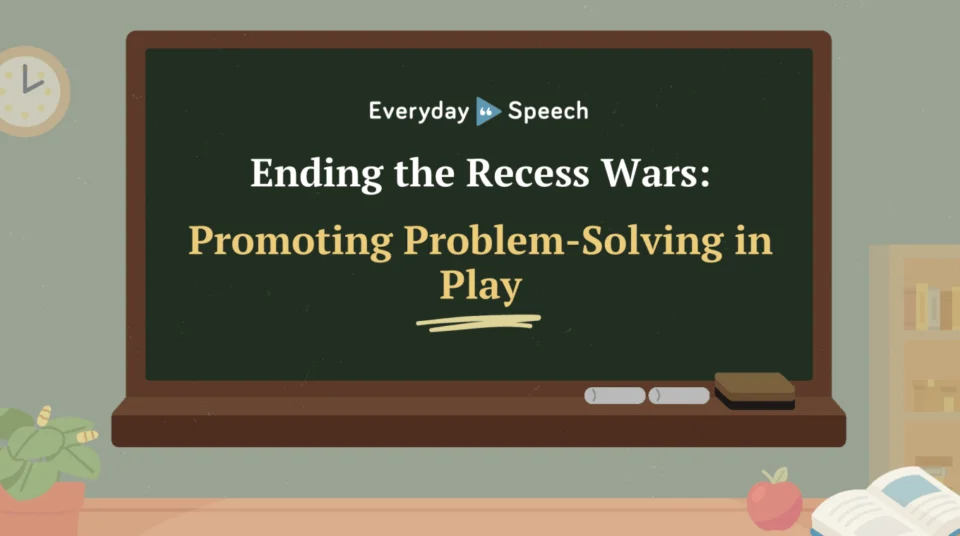Teaching Problem-Solving Skills to Special Education Students
Get free social skills materials
No-prep lessons on self-regulation, emotional recognition, conversation skills, and more.
Sign up hereIntroduction
Problems are an inevitable part of life, and they can arise both at home and at school. Sometimes, problems occur because we don’t consider the consequences of our actions on others. Other times, problems happen by accident and are beyond our control. Regardless of the cause, it’s essential to equip students with effective problem-solving skills to navigate these situations. This blog post focuses on teaching problem-solving skills to special education students using the Problem-Solving Steps, a no-prep activity, and engaging discussion questions.
No-Prep Activity: The Problem-Solving Steps Role-Play
This activity requires no preparation or materials from the educator and helps students practice the Problem-Solving Steps in a fun and interactive way. Here’s how it works:
- Divide the students into small groups of 3-4.
- Give each group a common problem scenario to act out (e.g., forgetting a friend’s birthday, accidentally breaking a toy, or dealing with a canceled event).
- Ask the students to role-play the scenario, using the Problem-Solving Steps to resolve the situation.
- After each group has had a chance to present their role-play, discuss the different solutions and how the Problem-Solving Steps were applied.
This activity allows students to practice the Problem-Solving Steps in a low-pressure environment, helping them become more confident and independent problem solvers.
Discussion Questions
Here are some questions designed to stimulate further discussions about problem-solving:
- Why is it important to identify the size of a problem? How does this help us decide when to ask for help?
- Can you think of a time when you successfully solved a problem using the Problem-Solving Steps? How did it make you feel?
- What are some challenges you might face when trying to solve a problem? How can the Problem-Solving Steps help you overcome these challenges?
- How can we support our friends when they are facing problems? What role can empathy play in problem-solving?
- Why is it important to test our chosen solution? What should we do if our solution doesn’t work?
Related Skills
Beyond problem-solving, there are other essential skills that can help special education students navigate various situations. Some related skills include:
- Emotional regulation: The ability to manage one’s emotions and reactions to different situations.
- Empathy: Understanding and sharing the feelings of others, which can help in resolving conflicts and supporting friends.
- Communication: Expressing thoughts, feelings, and needs effectively and respectfully.
- Decision-making: The process of making choices by considering different options and their potential outcomes.
Next Steps
Now that you have an understanding of the Problem-Solving Steps and how to teach them to special education students, it’s time to put these strategies into practice. To help you get started, we encourage you to sign up for free samples of the discussed skill and other related materials at Everyday Speech. These resources will provide you with additional tools and techniques to support your students in developing their problem-solving abilities and other essential life skills.


